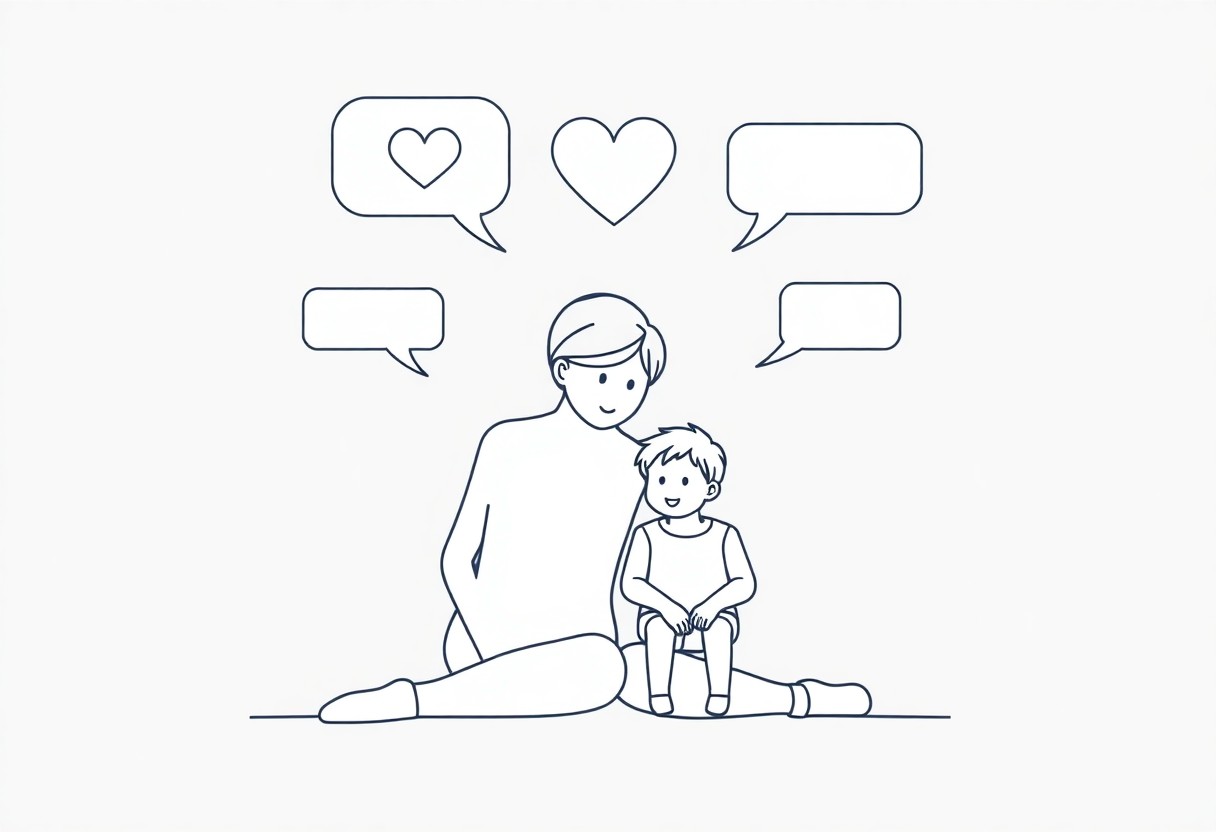What to Tell Your Kids When You Start Dating Again
There’s a delicate balance when it comes to introducing your children to your new dating life. You want to approach the topic with honesty and sensitivity, as your kids may have mixed feelings about seeing you date again after a separation or loss. It’s vital to communicate openly, reassuring them that your love for them remains unchanged. Explaining your intentions in a positive light can help alleviate their concerns and foster a supportive environment as you navigate this new chapter together.
Key Takeaways:
- Choose an appropriate time to have the conversation, ensuring your children feel comfortable and safe discussing their feelings.
- Be honest about your feelings and the reasons for dating again, while reassuring them that their emotions and opinions are valid.
- Emphasise that your love for them remains unchanged and that dating does not affect your role as a parent.
- Encourage open dialogue, allowing your children to express any concerns or questions they may have about the situation.
- Introduce them gradually to your new partner, ensuring they feel included and understand that adjustments take time.
Balancing Emotions: Preparing Yourself and Your Children
Balancing your emotions while navigating a new dating landscape is vital. As you venture back into dating, reflecting on your feelings is important, but your children’s emotional well-being should remain a priority. Both you and your children might experience a range of emotions, and open communication can help everyone adjust to this new dynamic, allowing for a smoother transition into this phase of life.
Understanding Your Own Feelings
Before discussing dating with your children, take time to evaluate your own emotions. You may feel excitement, anxiety, or guilt as you return to the dating scene. Acknowledging these feelings will prepare you to communicate more openly with your children. Create a space for self-reflection, whether through journaling or talking with a friend, which will enhance your emotional clarity and ability to support your kids through the changes.
Assessing Your Children’s Emotional Readiness
Understanding your children’s emotional readiness is key when introducing the idea of dating. Different ages and personalities can lead to varied reactions, so listen to their concerns and gauge their comfort levels. For younger children, simple explanations may suffice, while older kids might want a deeper conversation about relationships. Consider using their interests, such as favourite books or shows, to help frame the discussion in a relatable way.
To effectively assess how your children feel about you dating, approach the topic with sensitivity. Initiate conversations by asking open-ended questions like, “How would you feel if I started seeing someone?” This encourages them to share their thoughts. Pay attention to their body language and tone, as these cues can indicate their feelings, even if they struggle to articulate them. It may also help to reassure them that your love and commitment to them remain unchanged, which can ease their worries about these new developments.
Crafting the Conversation: What to Say and How to Say It
Tailoring your conversation about dating to your children’s understanding will make a significant difference in how they respond. Start by expressing your feelings in a straightforward manner, using language they can relate to. For instance, you might say, “I’ve met someone special, and I’d like to share more about it with you.” This approach sets the tone for a discussion filled with transparency and love, allowing your children to ask questions or express their feelings without hesitation.
Age-Appropriate Communication Techniques
Adjusting your message according to your children’s ages can help simplify complex feelings. For younger children, stick to joyful language and emphasise how your new relationship impacts family time positively. For teenagers, address their concerns more directly, allowing them to articulate their feelings about potential changes in family dynamics.
Encouraging Open Dialogue
Fostering an environment where your children feel comfortable expressing themselves can ease anxieties surrounding your new relationship. Make it clear that they can share their thoughts openly and that their opinions are valued in the conversation. Encourage questions, whether they stem from curiosity or concern, by demonstrating a willingness to listen and engage with their feelings seriously. Sincere validation of their emotions will strengthen your bond and keep the lines of communication open.
Open dialogue helps your children process their feelings about your dating life. Establish regular check-ins to discuss how they feel as changes occur, reinforcing that their emotions matter to you. Create a safe space for conversation by being approachable; if they sense you’re comfortable, they will likely speak more candidly. Doing so not only addresses immediate concerns but also nurtures trust in your relationship, making it easier for them to navigate their own feelings as new relationships develop.
Navigating the New Dynamics: Integrating a Partner into Family Life
Introducing a new partner into your family life can shift the dynamics significantly. Approach this transition with mindfulness, ensuring your children feel included and valued throughout the process. Prioritising open communication will help them express any concerns while fostering a sense of stability. As your partner becomes more integrated into daily life, maintaining a harmonious atmosphere will be necessary for all family members, allowing new relationships to flourish without feeling threatening to existing bonds.
Strategies for Introducing a New Partner
Start by introducing your partner in low-pressure settings like casual outings or family activities, allowing your children to interact naturally without feeling forced. Begin with shared interests, such as a favourite sport or hobby, making the introductions enjoyable and relaxed. Gradually increase the frequency of interactions, always providing your children with opportunities to express their feelings about their new connection.
Setting Boundaries and Expectations
Defining clear boundaries and expectations is necessary for integrating a new partner smoothly. Discuss with your partner what roles they will play in your children’s lives, without overstepping their boundaries or undermining your parenting. This clarity helps to create a supportive environment for your children, providing them with reassurance as they adjust to this new family dynamic.
Establishing these boundaries isn’t just about defining your partner’s role; it’s a way of reinforcing your authority as a parent. You might outline what behaviours are acceptable in your home, how to approach discipline, and what family traditions to maintain. For instance, if your partner dislikes a particular family event, but your children cherish it, emphasise that their feelings come first. By collaborating with your partner on these guidelines, you build trust and ensure everyone feels respected, ultimately easing your children’s apprehensions about any changes within the family structure.

Addressing Fears and Concerns: Validating Your Children’s Feelings
Validating your children’s feelings is an vital part of addressing their fears and concerns about your dating life. Open conversations can help them articulate their worries, whether it involves anxiety over accepting a new partner or feeling unsure about their family dynamics. By allowing your kids to express their emotions, you show that their feelings matter, fostering an environment of trust where they feel secure in sharing their worries.
Recognising Common Fears in Children
Children often experience a range of fears when a parent starts dating again. They might worry about losing time with you, feeling replaced, or facing changes to their daily routine. Recognising these common fears provides insight into their emotional landscape, allowing you to respond thoughtfully to each concern. For instance, they may fear that a new partner might be unkind or that family traditions will be upended, leading to anxiety about an uncertain future.
Providing Reassurance and Support
Offering reassurance and support directly addresses your children’s fears and can help alleviate their anxieties. Highlight your unconditional love for them and remind them that they remain your top priority. Frequent check-ins, a commitment to maintaining family traditions, or even simple gestures like dedicated family days can instil a sense of stability. By being attentive to their feelings, you nurture their emotional well-being, showing they can confidently embrace this new chapter in your life.
To reinforce support, foster open dialogue by encouraging your children to share their feelings, creating a safe space where they can voice their thoughts without fear of judgement. Actively listen and validate their concerns, acknowledging that it’s normal to feel apprehensive. Share your feelings too; revealing that you have your own worries can help them feel less isolated. Regularly engaging in family activities also strengthens bonds and reassures them that love and connection remain intact amidst changes in your dating life.
The Role of Routine: Maintaining Stability Amid Change
Creating a sense of stability for your children during this period of change involves integrating routine into your daily life. Consistent schedules help your children adjust to new dynamics, promoting feelings of security. When you prioritise family activities while incorporating your dating, you can mitigate the uncertainties that often accompany such transitions. Regular meal times, family nights, or established weekend traditions can become pillars of support, reinforcing the idea that, despite changes in your personal life, family remains a constant source of love and stability.
Balancing New Relationships with Family Time
Striking a balance between nurturing new relationships and dedicating time to your family often requires careful planning. Allocate specific days for family activities that are non-negotiable, ensuring that your children feel valued and secure amidst your dating life. Including your children in discussions about your schedule promotes transparency, making it easier for them to adapt to the changes while preserving those cherished family moments.
Establishing Predictable Routines for Comfort
Predictable routines provide an crucial anchor for children navigating the complexities of a parent dating again. By establishing daily rituals, such as breakfast together or a set bedtime story, you help them feel more secure in the midst of new experiences. These routines not only foster connection between you and your children but also create an environment where they can openly express any concerns about your dating life. Involving them in these routines can further ease their anxieties, reassuring them that your love and attention remain unwavering, even as your lifestyle evolves.
To wrap up
Following this, it’s necessary to have an open conversation with your children about your new dating life. Begin by reassuring them that their feelings are valid and that your love for them remains unchanged. Share age-appropriate details about who you are dating, and emphasise the importance of respect and kindness. Encourage them to ask questions and express their feelings, ensuring they feel included in this new chapter. This approach can help foster trust and ease any concerns they may have about your dating journey.
FAQ
Q: How should I explain my decision to start dating again to my children?
A: When discussing your decision to start dating again, it’s important to approach the conversation with openness. Start by expressing to your children that you value their feelings and want to share this part of your life with them. You could explain that dating is a way for you to meet new people, have fun, and possibly make a deeper connection with someone. Assure them that they remain your top priority and that this will not change your relationship or your responsibilities as a parent.
Q: What if my children feel uncomfortable with the idea of me dating?
A: It’s completely normal for children to have mixed feelings about their parent dating again. Encourage them to express their thoughts and emotions, and actively listen to what they have to say. Acknowledge their feelings and reassess how you present your dating life to them. Reassure them that their comfort is important to you and that any new relationship does not replace the bond you share as a family.
Q: Should I introduce my children to someone I’m dating right away?
A: It’s wise to proceed with caution when it comes to introducing your children to someone you’re dating. Generally, it is best to wait until you feel a good level of stability and seriousness in the relationship before making introductions. This helps to avoid potential emotional disruption for your children if the relationship does not progress. Once you’re ready to introduce them, do so in a casual setting and ensure that your children feel comfortable with the encounter.
Q: How can I address any worries my children may have about my dating life?
A: To ease any worries your children may have, initiate a conversation where you can talk openly about their concerns. Encourage them to ask questions and express their feelings. You can share the positive aspects of dating and how it can contribute to your happiness. It might also help to affirm that your commitment and love for them remains unchanged and that they will always come first in your life.
Q: What can I do to help my children adjust to my dating?
A: To assist your children in adjusting to your dating, maintain a stable home environment and keep communication lines open. Ensure routine family activities remain unchanged, which creates a sense of security for them. Additionally, involve them in age-appropriate discussions about relationships, allowing them to share their views and experiences. This process will help them feel a sense of control and involvement in the transition.






